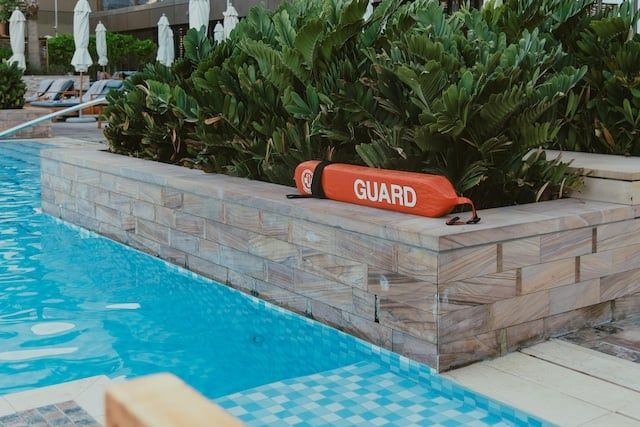A community pool is one of the most valued amenities in any neighborhood—it offers relaxation, recreation, and a place for residents to connect. But when it comes to pool safety, one big question often arises for HOA Boards and community managers: Should we hire lifeguards, or can we operate safely without them?
There’s no correct answer so evaluate the pros and cons below to make the best decision for your community.
The advantages of hiring lifeguards are:
Ø Enhanced Safety and Supervision. The most obvious benefit of hiring lifeguards is improved safety. Trained lifeguards are certified in CPR, rescue techniques and first aid. This added supervision can significantly reduce the risk of accidents, especially in communities with children, elderly residents, or high pool usage.
Ø Peace of Mind. Many residents—especially parents—feel more at ease knowing a professional is on duty. This sense of security can increase resident satisfaction and even enhance property values by demonstrating the HOA’s commitment to safety and risk management.
Ø Risk and Liability Management. Having certified lifeguards may help limit liability in the event of an incident. Some insurance providers even offer better rates or coverage when lifeguards are present.
The disadvantages of hiring lifeguards:
Ø Cost Considerations. Hiring lifeguards comes at an expense, including hourly wages, training, certifications, and insurance. For smaller communities or pools with limited use, this cost may outweigh the perceived benefit—especially if it leads to higher assessments or budget cuts elsewhere.
Ø Limited Availability. Lifeguard staffing can be a challenge. Many communities struggle to recruit and retain qualified personnel, which may lead to reduced pool hours or temporary closures.
The hybrid approach to hiring lifeguards:
Ø "Swim at Your Own Risk" Policies. Many communities are now trying a hybrid approach by posting clear ‘ Swim at your own Risk’ and ‘Pool Rules & Regulations’ signage, installing access control (key fobs, codes), emergency phone stations and security cameras to promote safety without lifeguards. In these cases, strong pool rules, resident education, and periodic safety audits are essential.
Ø Pool safety training for residents. Many associations hold annual CPR certification and rescue technique courses for their residents.
Ø Hire lifeguards only during peak hours, weekends, or special events. This will provide homeowners the added security and peace of mind when the pool is most active, while managing the expense.
The decision to hire lifeguards depends on your community’s size, budget, demographics, legal requirements, and overall approach to safety. Whether you choose to staff your pool or adopt a swim-at-your-own-risk model, the key is clear communication, strong safety protocols, and informed decision-making.

